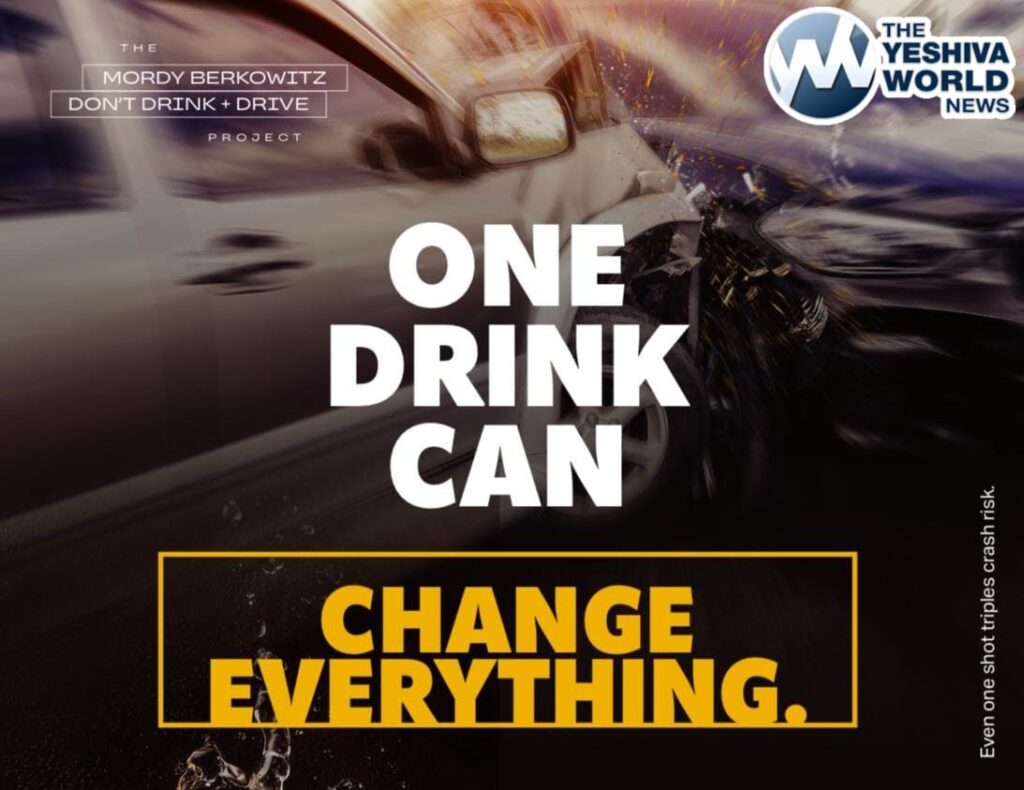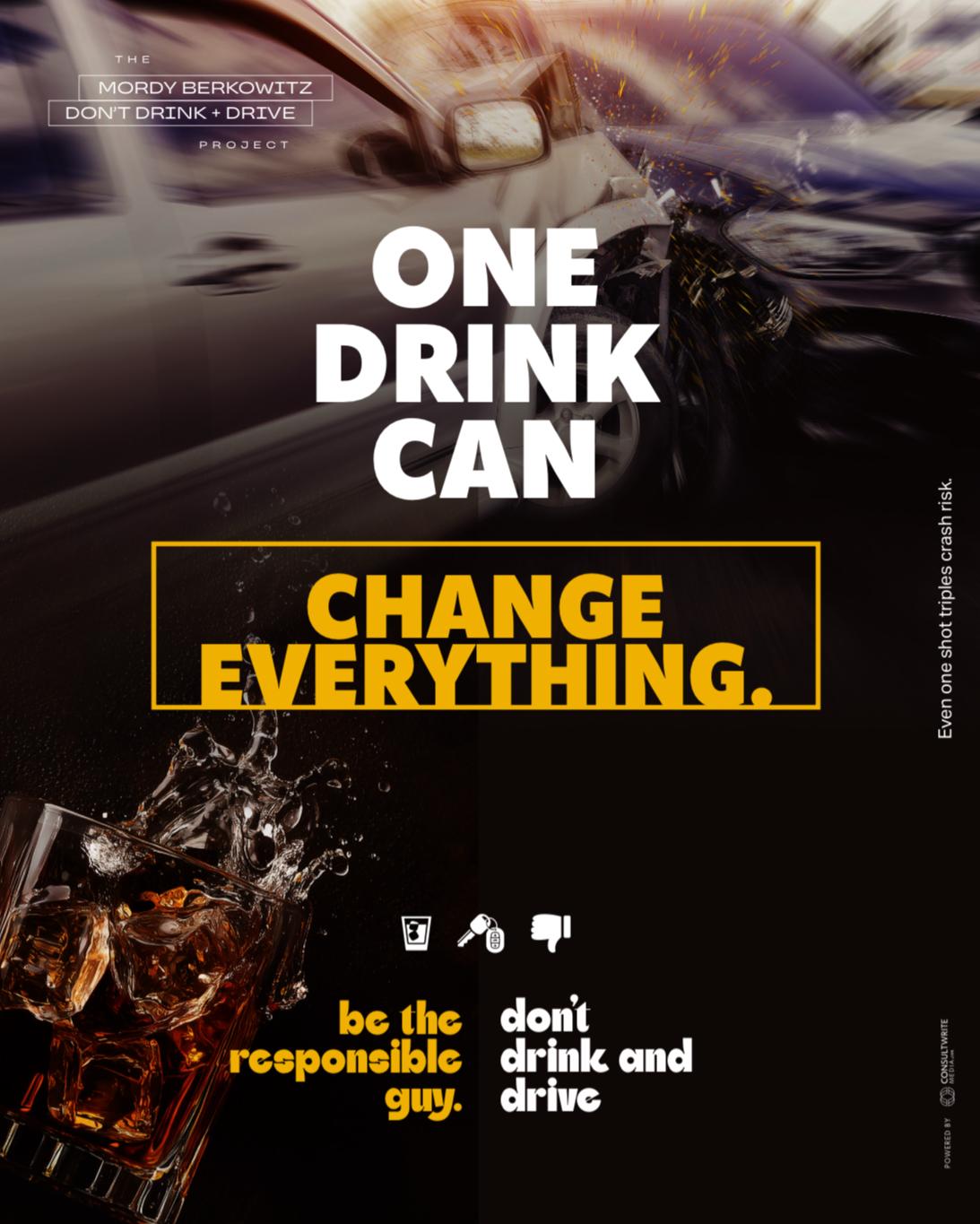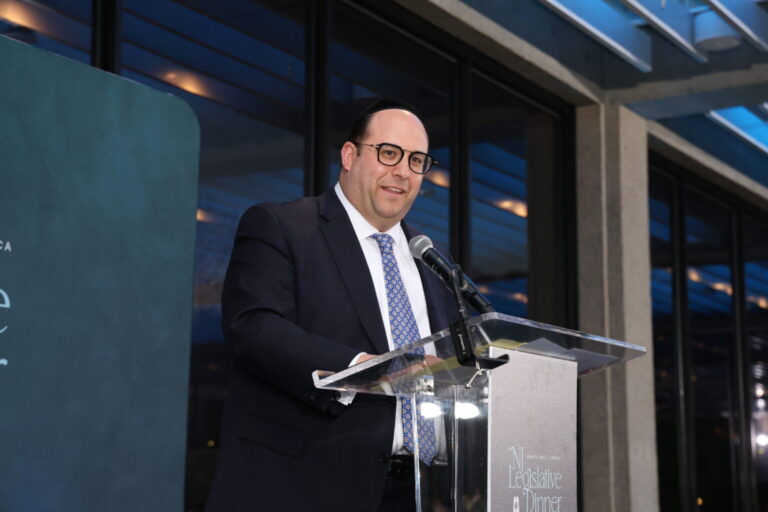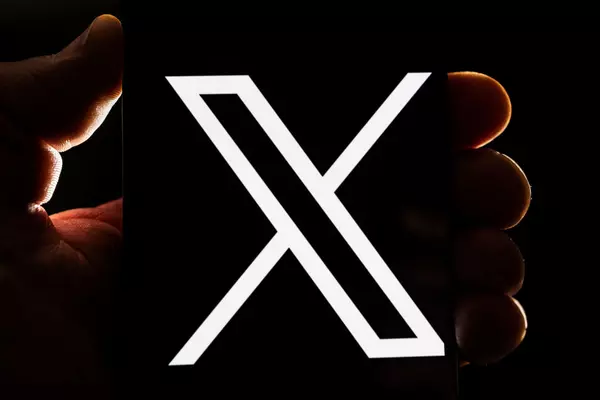Three years ago, I was just your average nearly-21-year-old bochur from Lakewood, New Jersey. I had friends, plans, and a future ahead of me. But in one moment, everything changed. I made a decision that can never be undone — I got behind the wheel after drinking alcohol. That choice ended someone’s life, permanently injured another person, and launched a brutal legal battle that turned my entire world upside down. Suddenly, my life became consumed by courtrooms, lawyers, and the overwhelming weight of consequences I never imagined facing.
It was Friday, July 22, 2022. I was at a to’ameha with a few friends — drinking, laughing, and enjoying the moment. A little before Shabbos, I decided to head over to a friend’s house to spend Shabbos. I jumped behind the wheel and started speeding, rushing to get there in time. I was driving down the winding curves of South Lake Drive when, in an instant, everything changed — I was in a head-on collision.
My car flipped on impact and landed upside down. I was trapped inside, disoriented and unable to move, with smoke filling the vehicle and flames beginning to spread. Lying there, helpless, it felt like the end — I didn’t think I was going to survive. Then a stranger pulled over, ran toward the wreck, and pulled me out just moments before the car exploded. The fact that I walked away from that crash with only minor injuries is nothing short of a miracle.
After I was released from the hospital, reality started to hit. A close family friend stepped in, hired a lawyer, and advised us that the next step I would have to take was turn myself in at the Ocean County Jail. Walking through those doors was a moment heavy beyond words, stepping into a place I never imagined I’d be. I spent five long, painful weeks behind bars.
That period of time was a constant waking nightmare. I was thankfully able to be in touch with seven contacts through the jail phone, and that was my lifeline. My friends and family kept me afloat, with chizuk and conversations around the clock. I didn’t speak to any of the other individuals in jail with me; they were very, very bad people, and having any conversation with any of them was not something I wanted to do.
Finally, after those five weeks, I was released on house arrest, where I’ve been confined ever since.
Being on house arrest means I’m home all day. It means I’m missing all family simchahs, all outings with friends — everything. For the first year, I wasn’t even allowed to go to shul. Now, baruch Hashem, I can go out for minyanim — at set times only — and it’s been a huge saving grace.
I have now gone before the judge and pleaded guilty to vehicular homicide. This means I’m awaiting sentencing, facing five to ten years in state prison. I am 23 years old now. Under the No Early Release Act, I won’t be eligible for parole until I’ve served at least 85 percent of my sentence. It’s a painful reality — to know I’ll be spending years behind bars, separated from everything and everyone I know.
The reason I’m sharing this now is because I’ve seen — and continue to hear about — far too many people making the same mistake I did: attending simchahs, parlor meetings, to’amehas, and other events, having a few drinks, and then casually getting behind the wheel. They say they feel “fine.” They genuinely believe they’re okay to drive. Too many people think they’re invincible behind the wheel, convinced that “it won’t happen to me.” I thought the same thing.
But the truth is, it only takes one time. You don’t realize how easy it is to cross the line — until you already have. One poor decision can destroy a family and your future in a matter of seconds. That quiet confidence is where the real danger lies. It’s what turns an ordinary night into a tragedy — one drive that ends with flashing lights, twisted metal, and a life forever lost.
And from that moment on, nothing is ever the same — for the family who will never see their loved one again, for the friends left grieving, and for everyone whose world was shattered in an instant. The pain doesn’t fade. The hole left behind never truly heals.
Please take my story as a life lesson.Set a clear, no-exceptions boundary for yourself. If you’re going to any event where you know you’ll be drinking, even just a little, decide in advance that you’re not driving afterward — not even once. Call a car service, arrange a ride, stay over, do whatever it takes. Be the one with the courage to say, “I feel fine, but I’m not risking it.”
I cannot get a second chance to undo this tragedy, so please: Take your first chance seriously.
Think ahead. Plan smart. Stick to your decision, because no simchah, no shortcut, no moment of feeling “okay” is worth a lifetime of regret.
And it’s not just about your own decisions. You have a responsibility to your friends, too. If you see someone about to drive after drinking — even if he insists he’s fine — step in, say something, take his keys, or call a ride. Stopping him might feel uncomfortable in the moment, but living with the regret of staying silent is far worse. True friendship means protecting each other, even from ourselves.
The next choice is yours. You can be the reason someone lives — or the reason they don’t.
Choose wisely.
(Originally featured in Mishpacha, Issue 1070)













28 Responses
Sad.
Oy, Hashem should give you koiach and nechama in this bitter and painful matzav. Who can understand such tzaros? In one minute, from one terrible mistake, a whole life can be turned upside down, rachmana litzlan. We can only daven that the judge should have rachmones and give you the smallest sentence possible. And who knows — we Yidden always believe in nissim — maybe even a pardon from the governor. Oy, it’s heartbreaking that an innocent life was taken and can never be brought back, but maybe your life can still be spared, and you can use this darkness to bring light by teaching others about the dangers of driving under the influence, so no other family should ever face such pain.
The article is very poignant and sad, and probably should be out there for public awareness etc., but the headline and the leading concept is incorrect and to a degree, offensive. The “average” Lakewood bochur does not have “drinking” as one of his attributes. No doubt there are significant numbers of Bochurim wasting their time in BMG, and the bitul Zman will lead to aberrant behaviors, but that would not be “average”. The “average” BMG guy isn’t attending a random toameha (there is significant number who don’t even know what a toameha is, the chazal notwithstanding). Rather, the “average” Lakewood bochur is in the Yeshiva to learn, and behaviors counter to that (like drinking) are not on his menu of Friday afternoon activities (he’ll go play ball or something like that, but he won’t go where he knows he’ll be tempted to become the new “average”.
Many reading this will say I’m smoking something, and I should wake up and smell the roses, etc., but remember this important point: the average Lakewood or former Lakewood bochur reading and perusing (and commenting) on sites like this is NOT an average Lakewood guy. He is, to some degree, from the significant numbers of non-average guys (someone like me) who were somewhat bored in Lakewood. Please note that I am not criticizing YWN or any other similar sites, I am merely pointing out the obvious.
The story is sad, and important to be told, but I am just not comfortable with the concept of this being average. I b”h raised a number of children who are “average” yungeleit in Lakewood, some still learning, some working, but they all understand “toameha” as a verb rather than a noun, in spite of the unfortunate proliferation of “toameha events” popping up all over town
Treatment is for alcoholics. Jail and other legal consequences are for drunks. While there is overlap, these are two differeny things, and they should not be confused. Alcoholism is a dependency on the chemical. It results in negative consequences, sooner or later. Driving drunk can be one of them. But that behavior is not a disease. It is a crime. Running to a therapist cannot undo the damage, not the citations, not the convictions, not the loss of life or other damages.
It is becoming more clear from our Poskim that this “toameho” stuff is not a part of preparing for Shabbos. Rather, it is an indulging in pure physical pleasure, labeled as it is to sound like it’s some sort of mitzvah. Driving under the influence of kigel or cholent is not the crime. But who introduced alcohol into these events? That is nothing less than frivolous drinking. And it is this kind of behavior that resembles a goyishe simcha, not a Yiddishe event.
I might feel bad that this young man just watched his life altered horribly. But when we make bad decisions, we risk such consequences. He is exactly where he chose to be. And, no, I will never contribute a dime towards a pidyon shvuyim to get him released from prison. It is NOT pidyon shvuyim. He was never captured. He committed murder, and is locked up by his own choice.
The unfortunate reality is the type of bochur who is going to read this and take it to heart is usually not the type of boy who needed the lesson.
The macho bochur who would say “it was just a couple drinks, I’m fine to drive“ is also the type of bochur to say “oh that situation was different, he was stone drunk” or something along those lines.
I know this because I was the former type of of Bochur and have seen the poor life choices my macho friends made. Rationalization can lead to some terrible outcomes. (Granted their situations aren’t as bad as the fellow writing the article…)
The poster did not mention 3 things,1, he killed someone 2, he maimed someone for life 3, he was driving 90 MPH in a 35 zone, this sounds more of a self pity piece instead of owning up about what he did.
PS 4 people in Lakewood were charged with vehicular homicide in the past 3 years, why is everyone silent????
Hashem should bentch you and your family with lots of
ברכה
Hashem should help you and you should be Zocheh to become
פטור
from the prison sentence.
May hashem keep his right hand on you throughout this journey, and also to the family who lost their loved one.
So impressed by the courage of this young man to step forward in order to make sure others don’t make the same mistakes! Kol hakavod
i have seen this to many times even in my own family. first these kids are in denial ;they are not your average bochur.
who drinks Friday before the zman to the
point of getting drunk most are not in yeshiva are not frum even if they look it ,take drugs, have no legal licenses because its been revoked,unfortunately.
after the get into a terrible situation they see the light. there is only one solution for these kids is to do tsuvah its never too late he will pay a terrible price iI FELL VERY SORRY FOR HIM BUT WITH HASHEM’s HELP HE CAN TURN AROUND HIS LIFE AND HELP OTHERS LIKE HIM
three is no other way
Wow Mordy, this surely took alot of courage and humility to write, and regardless of what anyone says, you did the write thing by writing this! If it even prevents one person from driving under the influence, it was was worth it a thousand times over!
May Hashem save you from all of your tzaros and give you koach to withstand whatever you may face!
I can’t agree enough with those pointing out that this is not “average bochur” behavior & should not be normalized.
Another perspective which doesn’t get enough attention is that the moment this drunk got behind the wheel is the moment in which he committed murder (by playing Russian roulette with the lives of everyone in his path). If you ever drove drunk you are no different, you pulled the trigger but missed, you got lucky. There is absolutely no difference between what this murderer did & what anyone else driving drunk did in terms of their exercising their agency over their life choices, the outcome in both cases is totally beyond their control.
We must normalize this mindset, if you see someone about to drive under the influence – be sure they know that as far as you are concerned they are a rotzeiach, even if this time they get lucky.
I also felt like this article was written with a lot more self pity rather than true remorse, perhaps if this bochur would have been a bit less self centered he wouldn’t have made a decision to get behind the wheel based on how HE felt & more based on how society views DUI. (He also maybe would have realized that he isn’t the average bochur & what he was doing wasn’t normal)
the letter is a zichus for you, by helping other people, hashem will help YOU too. the despair in the letter is evident, however we need to remember EIN oid M’lvado, no judge will decide your life hashem can make nissim and you can still have a future even soon. if you are allowed to travel i would recommend you go to Bobover Rebbes Tzion, in New Jersey or the Ribnitzer Tzion in Monsey this week and pour out your heart, and beh have bitachon in hashem and let us all know bsiros Tovas.
( A known story of a yid in boro park who lawyers gave no chance below 25 years and with Skolya Rebbe Z’L bracha a Ness happened and he was totally let go and built a nice family) dont despair and beh hashem should help you bkariv
To the little I know
Your screen name says it all. You know nothing. What a bad middah! You should learn some mussar and learn the correct attitude to have towards such a person who admittedly made a bad choice. Of course we pay whatever it may take to get him out of jail and it’s not our job to decide how guilty he is or is not. Maybe you can post all the choices you made in your life and we’ll all sit there and judge them.
@commonsaychel The Author actually did mention the first 2 things- “That choice ended someone’s life, permanently injured another person,” All you had to do was read the first paragraph…
@commonsaychel
I don’t know what article you read but this one does state: “That choice ended someone’s life, permanently injured another person” later on he writes he write “I jumped behind the wheel and started speeding, rushing to get there in time.” It doesn’t say 90 mph but the point is still there.
Many commentators are missing a fundamental point: you do not have to be “drunk” for alcohol to affect driving in this way, you only have to be over the limit and that limit is quite low.
There’s no set limit as everyone’s metabolism is different but feeling a little high or slightly buzzing but nowhere near stuck means you’re almost certainly well over the limit, and even if you feel fine but you’ve consumed some shots you may be over the limit.
So if you’ve drunk anything even a lchaim glass or two don’t drive, or chv you can end up in this situation. It’s nothing to do with heavy drinking.
@commonsaychel
>July 20, 2025 6:30 pm at 6:30 pm
>The poster did not mention 3 things,1, he killed someone 2, he maimed someone for
>life
He says so in the first paragraph of the article
This article is unmistakably the work of a defense attorney cloaked in pseudo-confessional piety, crafted to salvage a client’s public image and curry favor with prosecutors or a judge. First, it conspicuously omits the victim’s name, the details of their death, and the maimed survivor—classic lawyerly maneuvering to avoid evoking public outrage. Second, its tone—mawkish, neatly structured, and obsessively focused on remorse rather than responsibility—screams ghostwritten damage control. The bochur’s self-portrayal as a “typical 21-year-old” is a legal framing device, designed to normalize criminal recklessness. The entire essay hits every note a lawyer would script: acknowledgment of guilt without specifics, transformation narrative, community warning, and emotional appeals to leniency. Finally, its publication in Mishpacha—and syndication on YWN—without journalistic inquiry or rebuttal, is no accident; it’s a staged PR drop, not journalism. This isn’t teshuvah. It’s legal spin—strategic, sanitized, and contemptibly manipulative.
Who did you kill?
What about his/her life??
Thanks for sharing. It is very important for everyone to learn from this.
H” should make this go fast and easy for you.
When did the toameha events become so common? Maybe I’m out of the loop, but I never even heard the term in this context until recently, and now I’m seeing it everywhere. There are halachos about what/how much one is allowed to eat on Friday, and there’s a ha;acha of tasting food for shabbos to make sure it’s good. Someone can correct me if I’m wrong, but it sounds like these toameha events violate the first and have nothing to do with the second.
@commonsaychel
He did mention it. All of the three. But whatever.
@Ari Knobler
I’m glad you let it all out of your chest. Feeling better now?
@Shlomo67, that is not just speeding, that is over 3 times the speed limit. over 90 MPH!
PS the house arrest time counts toward time served, so don’t cry over missed simchas
There are so many sad things to address here. I’ll pick the smallest. We must end this nonsense of “toameaha” before shabbas. It’s not a thing. We must get back to proper frum values. Stuffing our faces before shabbas is not a proper frum value. Everything else grows from the mistakes in our values. From there, fressing, then alcohol.
Yes, it matters. Just make it all stop.
Thank for sharing your story. Takes a lot of courage, but you’re the best shaliach to bring awareness. Davening for you and your family to have koach through this tragedy. Stay strong.
@ANON21 Couldn’t agree more! Well said.
Irrespective of your feelings about the motive or sincerity of this response, and whether or not you consider people who engage in this behavior “frum” – one thing is absolutely undeniable:
No one wants to have this happen in their family.
Kids watch what we do, and the emulate the example that we set. Being irresponsible with our consumption of alcohol signals to them that this is a trait to emulate.
There are ways to role model consumption of alcohol in moderation, and there are ways to model the opposite.
Definitely eye opening for me – and something I hope never happens to anyone I know.